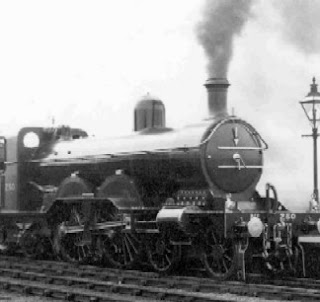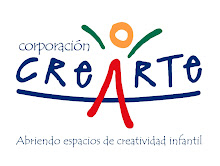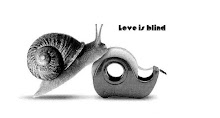
Reflections based on Virginia Woolf's A room of one's own.
This paper will be based on the essay written by Virginia Woolf, A room of one’s own and the reflections I have taken from it and also from the main ideas presented in her essay, as a way of supporting and linking the ideas and thoughts emerged from my reflections, to the implications that A room of one’s own have upon Chilean education matters such as the purpose of studying for men and women and the difference between technical careers provided in vulnerable schools for men and women. In last place, this paper seeks to encourage teachers to crumble the unconscious gender discrimination that teachers have when they teach and educate men and women differently.
After explaining the purpose of this work I will present the structure that it will have with the intention of providing a guideline that will help the reader to follow the essay easily and without any misunderstanding or any misreading. First, this work will discuss the importance of using A room of one’s own in the classroom as a means of breaking the old chauvinism paradigm which declares that women and men do not have the same intellectual capacities. In other words, this paper will present some aspects of the Chilean educational history that helps to understand- but not to support, in any case- the existent differentiation in terms of role gender in the Chilean educational context. After that, this essay will discuss the current academic-occupational offer that exists in vulnerable schools for women and men, as a way of denouncing that there is still a huge difference in terms of equal opportunities for boys and girls.
Now, the main question is: why is important to discuss gender issues in a so-called postmodern society, where human and women’s right are so well assured? The answer may be simpler than it appears: our society-the Chilean especially- still have to work on assure the equality of treatment and disposal of opportunities for women and, in this sense, this issue must be considered inside the classroom if our society wants to achieve an equal treatment for both women and men. However, this is not just the only reason of why this issue is important to discus in schools but, it is also important in the sense that first, we must recognize that most of the differences in terms of gender treatment are not new, in fact, they come from the beginning of the Chilean educational system because men and women were not instructed for the same purposes. For instance, men were educated to be the intellectual power in our society, they were sent to the best schools. On the other hand, women were not sent to school, in fact, their purpose in life was to find a noble husband to marry, just like Virginia Woolf wrote: “Marriage was not an affair of personal affection but of family avarice”. So, women were forced by their families to marry men in order to be maintained by them. This brought of course many negative consequences in women’s life because they were restricted to be mere housewives with few independent aspirations. Regarding to this matter A room of one’s own is very important because it contains many characteristics that are similar to our Chilean past society. For instance, when Woolf writes about a well-known person in Cambridge who was openly reluctant to the idea of equal treatment between men and women, she uses this person’s own words to denounce the belief that men had regarding to women’s capacities and abilities. These words were: “the best woman was intellectually the inferior of the worst man”.
Even though in Chile there was a huge opposition (from men and the Church, as well), women were allowed to study. However, this allowance was extremely limited for women because when public schools for women were founded during 1890’s, the main objective was not preparing women for professional studies (Sánchez, 2007) but women were prepared for being good and serviceable wives. For example, after women were allowed to study, there was a huge allegation from men and the Church because they argued that if women start studying, they would leave aside their housework as mothers and as wives. So, these schools started to incorporate within their curricula, subjects related to housework and childcare (Godoy, 1995). Here was the beginning of the difference- in terms of academic and intellectual preparation- between men and women. Therefore, the educational gap among men and women increased through years that it still has consequences in our present.
The second topic of this essay is the current differentiation that exists in terms of academic-occupational offer in vulnerable schools for women and men. It is well know that these kinds of schools try to provide their students the necessary tools for they can cope with this system but, are these schools providing real, fair and equal opportunities for girls and boys? For example, many schools for women offer the secretarial and gastronomical careers. This lead us to think immediately in our past; the women’s role-according to men’s viewpoint- in society because it is rare to see a technologic career (which is unfortunately associated to men’s work) offered by a women’s school. On the other hand, it is very common to see careers as Business administration and Telecommunication in men’s school.
What I am trying to point out here, is that there is a huge burden that our society bears which must not be omitted just because we are accustomed to it. Not because society considers normal that women study to be secretaries or cooks and men study to be administrators or computer engineering, teachers must recognize this issue as normal, on the contrary, this knowledge can be of great help in order to realize of the immense injustice against women in our society through years and, A room of one’s own can be a powerful tool for using it in the classroom because it depicts common characteristics from the author society and our society, in terms of women’s role.
Taking into consideration that our society loads an extremely chauvinist belief regarding to women’s role, especially in educational matters, it is teachers’ task to overcome and change this misconception, in the sense that in our daily practice with students we should not be transferring the chauvinist understanding of the world, accepting what the established system says. In other words, Virginia Woolf’s A room of one’s own can be suitable for using it in a men’s school as well as a women’s school, as a way of promoting the awareness of the mistreatment which women carried for many years that still has its consequences in today’s world.
To conclude, this essay was intended to promote awareness among teachers and students about women’s role in Chilean Education and how this role had a considerable influence over their personal growth and academic opportunities, especially in vulnerable schools which offer limited-according to my own understanding- chances for they can cope with this system with the best tools they can have. However, even though it has been a significant change in the role of women in our society, we still have to improve many aspects of it and, this is when the importance of teachers takes place, because it is their duty to break the existing difference among women and men inside schools.
WORKS CITED
- Godoy, Lorena “Disciplina y desacato: Construcción de la identidad en Chile, Siglo XIX & XX”. 1ª Parte: “Armas ansiosas de triunfo: dedal, aguja, tijeras…La educación Profesional femenina en Chile, 1888- 1912”. Ediciones Sur. Santiago, Chile. 1995.
- Sánchez, Karin. “Educación secundaria femenina en Chile: esfuerzo compartido entre particulares y el Estado 1877-1912”, en Revista Bicentenario, volumen 6, nº 1, 2007, pp.39-70.
- Woolf, Virginia. “A room of one’s own”





























